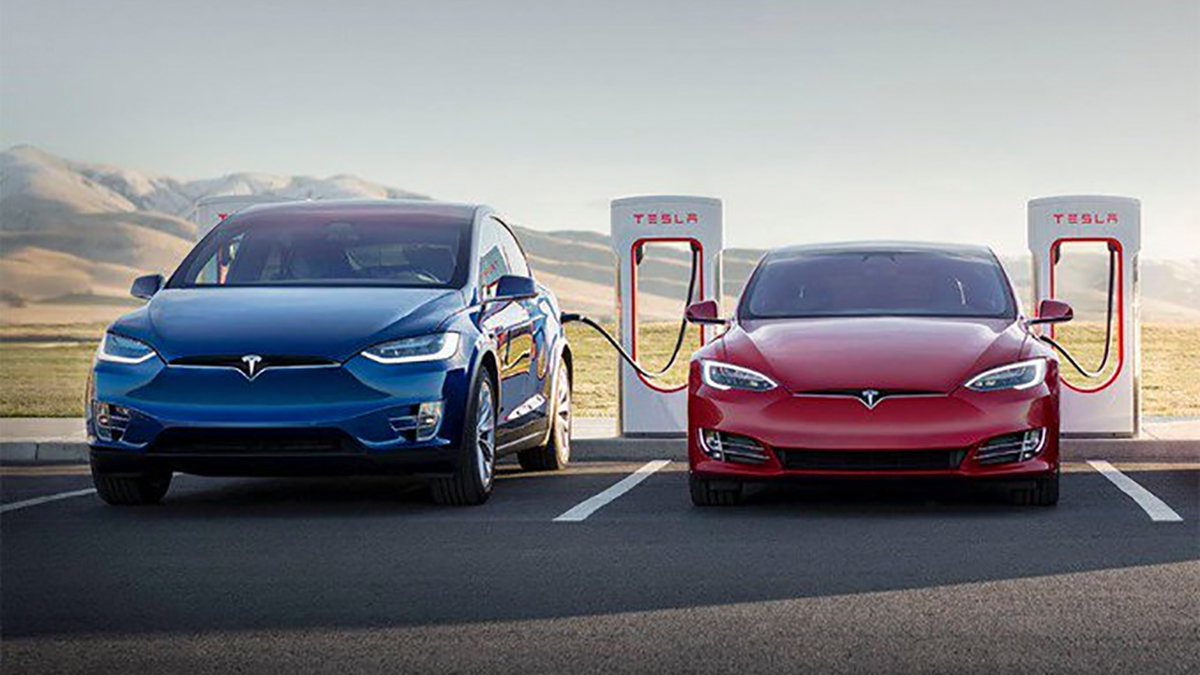Tesla may be about to super-charge its EV Superchargers
Supercharger network could provide speeds of up to 350kW

Tesla's Supercharger charging network is one of the automaker's most visible products, and one of the key ways it differentiates its products while also making them easier to live with than rivals.
That said, Tesla's chargers aren't up to speed with networks owned by outside companies, but the balance could shift in the near future.
Tesla investor and frequent Twitter poster Sawyer Merritt reported that the company is planning speed improvements for its charging network, with speeds increasing from 250kW to 324kW for 'V3' Superchargers.
An additional tweet from Merritt notes a V4 charging update will come soon after that will further bump charging speeds.
BREAKING: Tesla Superchargers in North America to get charging speed bump to 324kW (from 250kW) later this year.January 24, 2022
This is not official news from Tesla, so take the claims with a pinch of salt, but it's worth noting that Merritt has been right in the past regarding Tesla news he's tweeted out - which gives his latest tweets some added weight.
The speed increases would put Tesla's Supercharger network closer to other public chargers, which typically handle speeds of up to 350kW.
A not-insignificant metric for EVs is the voltage they can handle, but as InsideEVs points out, Teslas are currently only equipped with a 400V battery system.
Sign up for breaking news, reviews, opinion, top tech deals, and more.
A move to V4 Superchargers could mean that new higher-voltage vehicles are on the way.
We have contacted Tesla for comment, and will update this article if we receive a response.
Analysis: What does it mean for Tesla owners?
The news is a welcome development for Tesla buyers. Despite having one of the most robust and functional charging networks around, Tesla still hasn't cracked the code on fast charging.
The automaker's website claims a 15-minute charge can replenish 200 miles of range, which is great by modern EV standards, but abysmal when compared to refueling at a gas station.
Higher output (along with a supposed increase in voltage) could cut that time further and bring Teslas closer to parity with ICE vehicles.
The picture gets cloudier when looking at other automakers and independent charging networks.
EVGo and Electrify America currently offers charging of up to 350kW, but how quickly a vehicle can charge can vary wildly between brands and models.
Range is less of an issue for many EVs now, so charging speed is the last frontier to explore before mass adoption is truly possible.

After working in the technology and software industry for several years, Chris began writing as a way to help people outside of that world understand the sometimes very technical work that goes on behind the scenes. With a lifelong love of all things automotive, Chris turned his attention to writing new vehicle reviews, detailing industry trends, and breaking news. Along the way, he earned an MBA with a focus on data analysis that has helped him gain a strong understanding of why the auto industry’s biggest companies make the decisions they do.